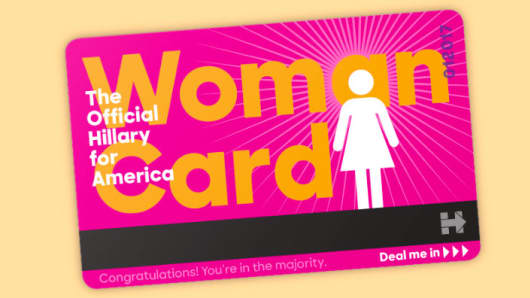Remember when Donald Trump said it was easier for him to be "presidential?" Neither do we, and apparently neither does he.
The Republican front runner may have gotten a little bit closer to becoming president last week, after sweeping all five states in Tuesday's primary, but he's no closer to acting presidential.
His sneering post-election comments about Hillary Clinton, like her yelling, her playing "the woman card," and the laughable assessment that she'd be at 5 percent if she were a man all reinforce what has been true about Trump for years: he has a woman problem.







